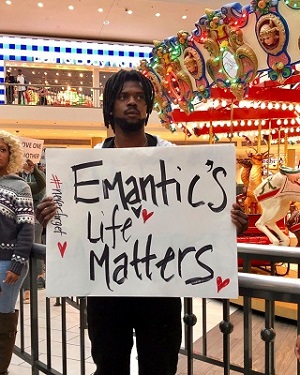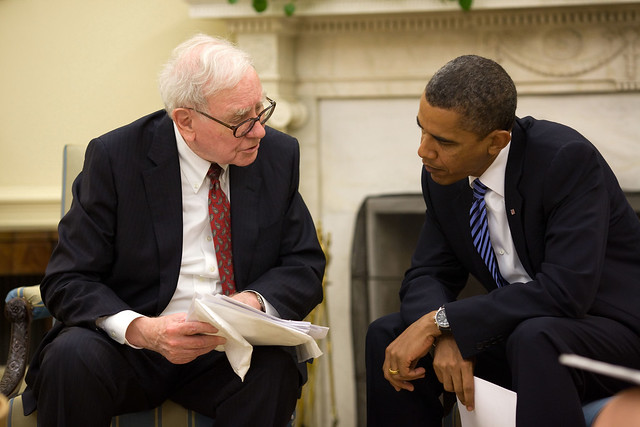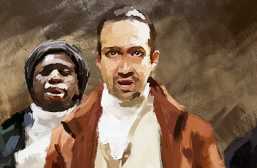Planning for a Better Communication

Scientific evidence shows that communication changed the world. 1 2 Communication affected religions. Communication caused success or betrayal for political leaders over the course of history. Communication is embedded in all the six core human needs, especially in need for love and connection, growth, and contribution. Even when people want to buy some food they have to communicate.
Everyone has a specific purpose to communicate. People transfer some information to each other through communications. These communications may have a high or a low impact on the others. When people fully understand a topic and the communication raises their emotions, obviously the communication has made a high impact on these individuals. This higher impact helps the communicator to better achieve what the communicator wants from the purpose of communication. Subsequently, people would obey what is requested, and what is requested is the purpose of communication.
Try to know the audience. Audience analysis helps one chose how to write for a specific group of audiences. Audience analysis helps one deliver a presentation in an appropriate manner. Audience analysis consists of assessing the audience to make sure the information provided to them is at the appropriate level. It involves identifying the audience and adapting a speech to their interests, level of understanding, attitudes, and beliefs.
Following the audience analysis, try to chose appropriate channels of communication relevant to the purpose. These channels may be including face-to-face communications channels, broadcast media communications channels (TV, and radio), mobile communications channels (SMS, and direct calls), electronic communications channels (email, facebook, and twitter), and written communications channels (letters, and proposals). Face-to-face communication methods come from nomadic civilizations and the Old World era, meanwhile television and internet are just getting considered as the innovations of the 20th century.
After you chose the appropriate communication channel, then you shall chose a suitable communication structure for each of the channels.
Try to master a few or all of the writing structures, and then write appropriately regarding with the purpose. These writing structures would be including chronological (discussing things in order), cause and effect (explaining a cause and its results), problem and solution (presenting a problem and offering a solution), compare and contrast (discussing similarities and differences), categorical or classification-division (sorting information into topics and categories), etc.
Never forget the issue that anxiety affects people’s communication performance, and they must try to come over the anxiety to make better communications. Having control over anxiety depends on many internal and external factors, such as the individual’s own abilities, and the environment.
Use the 5W&H technique to organize a speech for a specific group of audience. The 5W&H technique consists of five Ws and an H questions. You may use these questions in regard with organizing a speech, or try to answer these questions in the lead paragraph of the writing.
These questions are including:
Who is involved? Who is affected? Who will benefit? Who will be harmed?
What happened? What is your topic narrowed down in a simple phrase/sentence? What does your topic involve? What is your topic similar to / different from? What might be affected/changed by your topic?
When does/did/will/should the speech take place? Does when the speech takes place affect the topic?
Where does/did/will/should the speech take place? Does it matter where the speech takes place? Or if you are trying to answer this question in the lead paragraph, then where does the event or the story that we are writing about took place?
Why do certain things happen? Why is this topic matter?
How did the speech happen? How does this topic function? How did this topic come to be? How those are involved affected? Or if you are trying to answer this question in the lead paragraph, then for example how did the story happen?
It is not always applicable for the communicator to consider each of the five Ws and an H questions, in a paragraph.

Here it is a simple example of answering these questions in the first paragraph:
Attorney General Patrick Morrisey (who) of West Virginia (where) somehow but better than others depicted the real zombie story behind March for Our Lives (what), and the bring kids back home slogan (what).

The communicator shall employ plain English. Communication is not about sounding smart. Communication is about getting a message across to the audience and eliciting action. Warren Buffett the world’s wealthiest business magnet, and George Orwell the famous author of Animal Farm and 1984, both advocate writing as simple as possible and with clarity. George Orwell emphasis on this issue on “Politics and the English Language”, and Warren Buffett has dedicated a preface about this for a handbook called “A Plain English Handbook”. 3
Try to stimulate the emotions of the audience, but write objectively. Being objective would be understood and abstracted as not being influenced by personal feelings. Producing an emotional appeal requires an understanding of your audience and what may strike their emotions the most. An effective way to create emotional appeal is to use words that have a lot of pathos associated with them. 4
Deliver the speech with confidence.
And try to start and end memorably.
Important factors for a better communication are including: The volume, expression and eye contact, enunciation, tone, speed, breath, controlling your environment, and managerial presence.
And finally, active listening makes the communication more effective. Active listening requires that the listener fully concentrate, understand, respond and then remember what is being said. Pay attention, show that you’re listening, provide feedback, defer judgment, and respond appropriately. By active listening the communication between people would be improved since people would get more information. People would better understand what the others are saying, and also people would give a better response in an effective manner. Use the SOLER technique for active listening: “Squarely” face the audience (by doing this it shows you are involved), maintain “open posture” (this means not crossing arms and legs, and therefore it makes people feel engaged and welcome), “lean” toward the speaker (it shows you’re involved and listening to what they have to say), keep “eye contact” (your gaze shows that you’re listening and not distracted), and “relax” (it’s important to stay calm and avoid fidgeting when a person is talking to you to show you are focused).
Works Cited
What do you think? Leave a comment.











Communication is key to all successful projects and a lack of adequate communication can prove to be the downfall of many what would otherwise be successful.
I love the idea of speaking to your audience emotionally. If you can make a person laugh, you made a personal connection with them…
Great tips – and I love the way you ‘communicate’ them! 😉
I write a lot of live speeches. Expressing and sharing the tension with the audience has helped me through tough spots. There’s tons of reasons and ways to do this, but the most simplest one is just to start with it.
Be well informed. Reflect on the information. Relate to it. You will then write with a genuine confidence and passion.
Interesting piece.
Effective communication can increase work productivity and output which leads to the success of the business.
Being open for anything ideas are always good.
Understanding the subject, and what you want your receiver to learn is essential.
Totally. I’m a sucker for an emotional appeal.
Most of the time audiences are rooting for you, they want you to do well. Sharing that your nervous is a great way to “be real” and get the audience on your side.
Really good tips thanks for sharing.
Connection with your audience is more important than overly complicated techniques others find useful. Unmastered skills create obvious uneasiness, and others will notice it. After you’ve mastered naturalness of connecting to your listeners, your own technique develops naturally. Good communication usually involves patience, when necessary compound what needs to be understood… with means of minimizing questions without creating boredom.
good job!
Verbal communication is most interesting to me. To be a good or great communicator, you have to have a humble desire to want to communicate. A great communicator is patient and can feel their way within a conversation and allow unconditional truth to express itself.
Citation needed.
Communication is essential. But I find that people tend to mistrust speech and rhetoric, nowadays. People understand that speech can be used against them. As a result, I think we’ve created an unconscious way to tell if people are being genuine with what they say. Communication is very nuanced.
Knowing your audience and purpose is key. Well-written. 🙂
Great article, should be required reading for every speech class/club!
In following this article’s cogent advice about knowing one’s audience, also consider the question, “What does this audience want to know?” Also, “What action do I want this audience to take as a result of hearing my speech?”
Interesting article!
Love this article! I did a course at my uni which was all about communication. It took me back to the time when I did that course and it is still one of my favourite courses done so far at uni
Very good article, really like the tips on how to better communication via non-verbal methods. A paragraph referring to the significance of oral histories (still in use) and the oral transmission of information to subsequent generations before the development of text, would have added another interesting aspect. Not sure what is meant by nomadic, as most traditional societies had extensive traditional lands and waters, but usually with very defined boundaries from which they farmed and harvested resources. A sentence or more on cultural differences in communication practices could have been included. Face to face communication is one of my favourite things, rather than looking at a device to see someone talk from what was prepared and scripted beforehand, and then screened for targeted distribution by an algorithm. While there is the mention of ‘Who is involved? Who is affected? Who will benefit? Who will be harmed?’, a direct statement could have been made on the need to declare any conflict of interest the talker may have (e.g. political, commercial or industry sponsorship), about the subject matter they are sharing or promoting, this being an ethical and moral obligation due to the audience.
I here
Communication is at the heart of human civilization’s continual evolution especially in a day and age where decisions seem to be made without any thought or discourse.
Impressive article. Communication is the key to avoiding to a lot of problems specially in relationships. I think I will look at communication in a different light from now on.